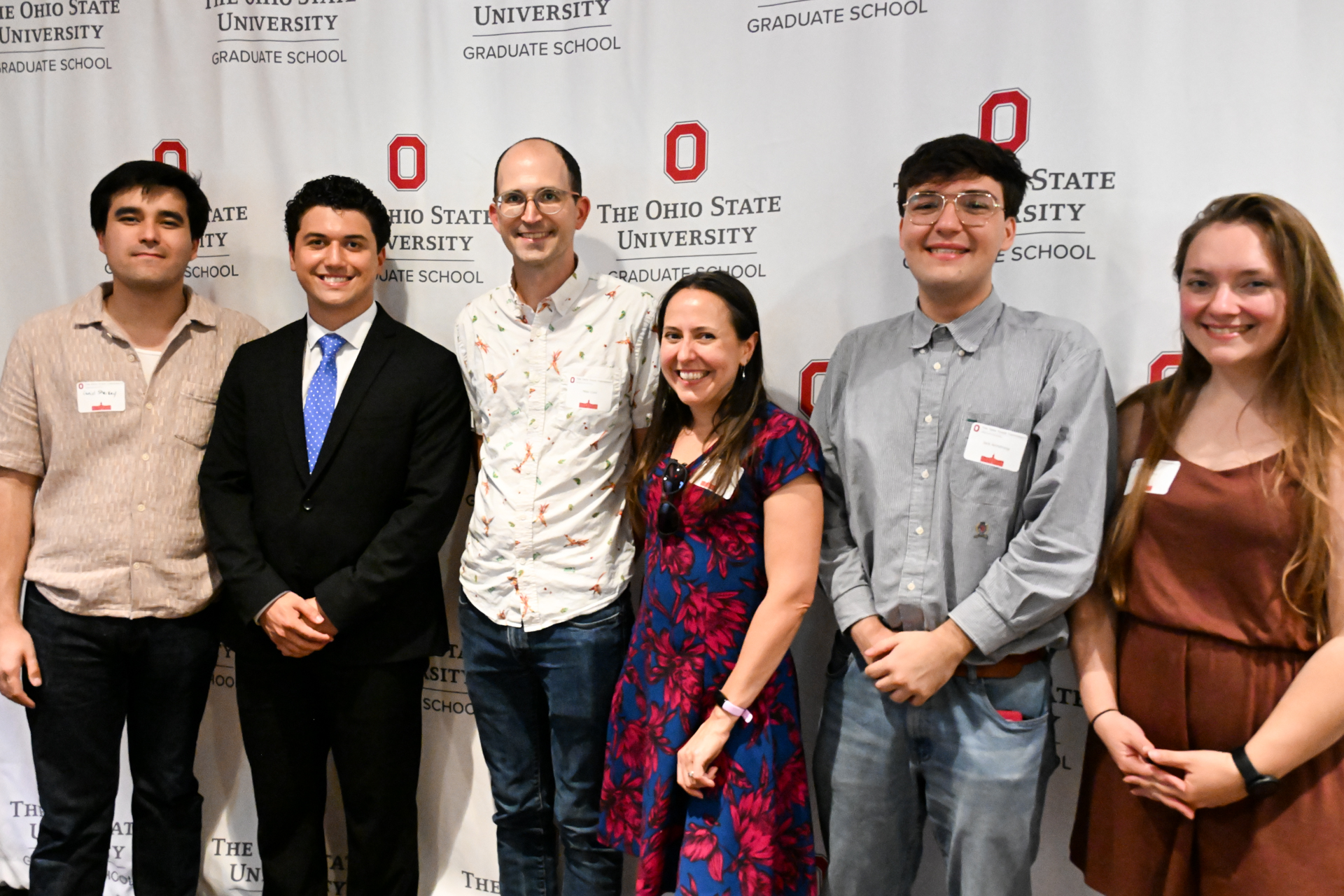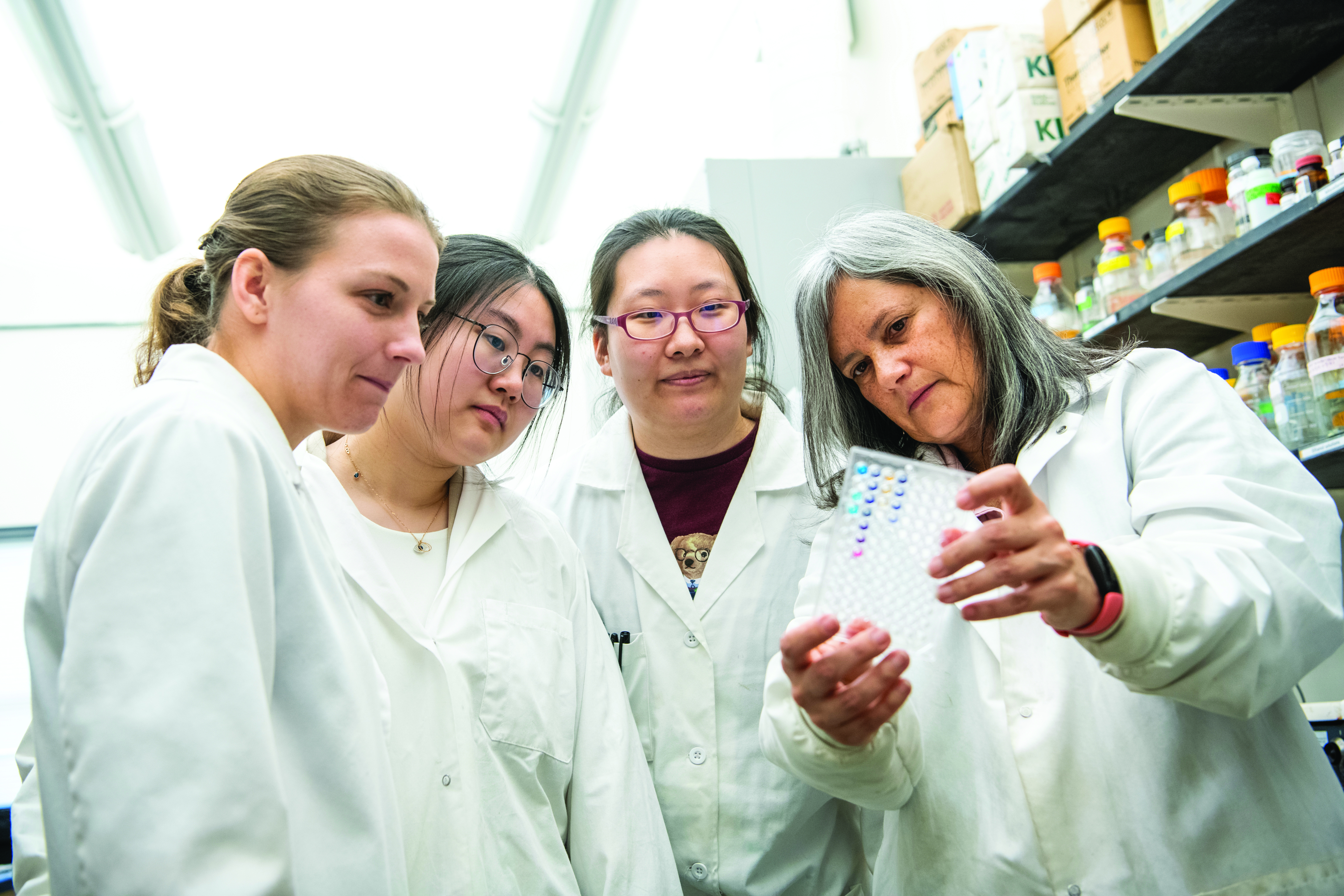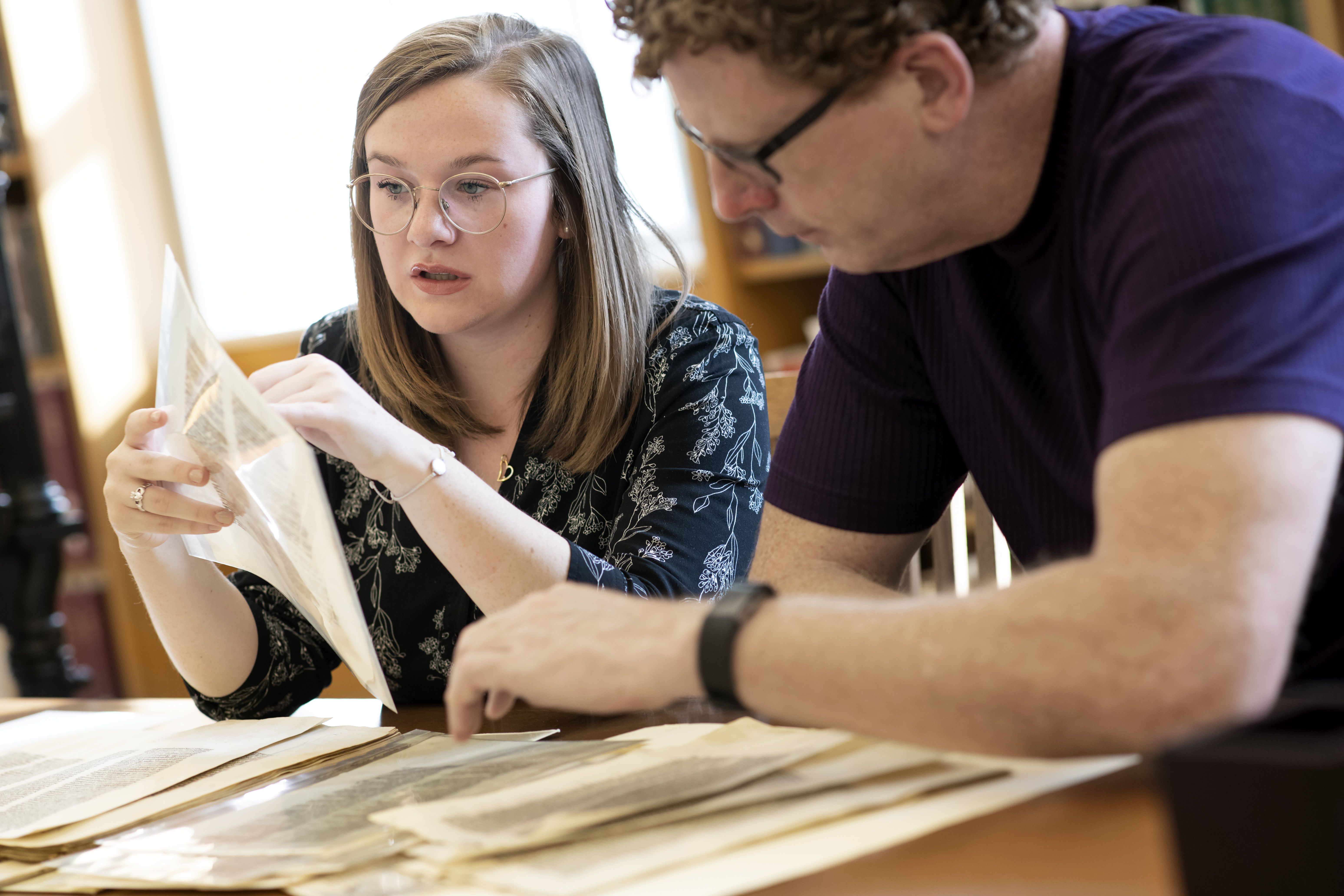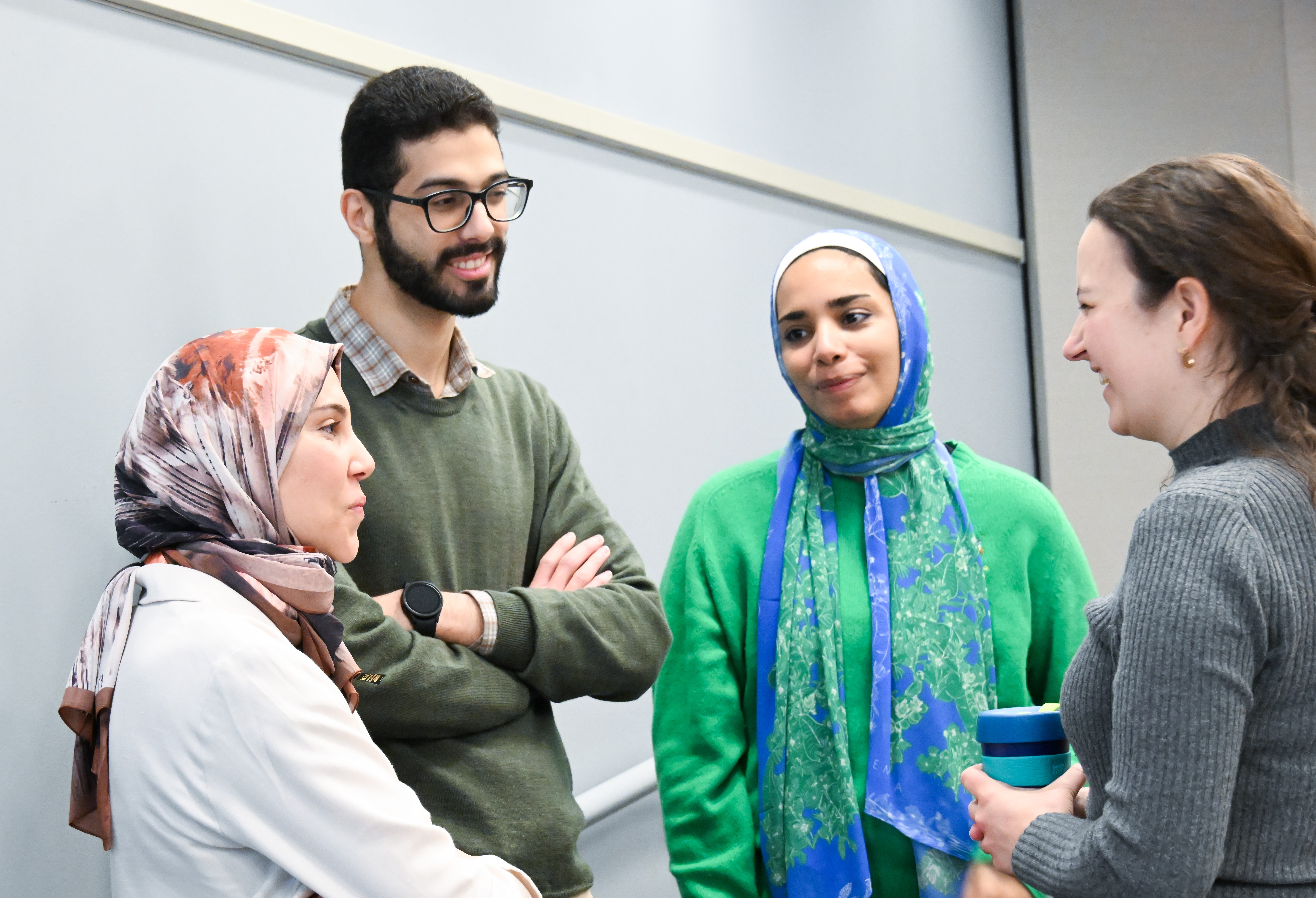
About the Mentoring Initiative
Housed in the Graduate School at The Ohio State University, the Ohio State Mentoring Initiative (OSMI) aims to centralize professional development, programming, and resources to enhance mentoring relationships and support academic and career success of graduate students and postdoctoral scholars across the university. We define mentoring as a “a professional, working alliance in which individuals work together over time to support the personal and professional growth, development, and success of the relational partners through the provision of career and psychosocial support” (Byars-Winston, A. & Dahlberg, M.L., 2019). OSMI has compiled key resources for mentors and mentees toward the goal of mentors providing strong, consistent, effective mentoring and mentees knowing how to show up as thoughtful mentees and understanding what to expect from their mentors. OSMI has toolkits, workshops, and other resources to support faculty, graduate students, postdoctoral scholars, and staff in building effective mentoring relationships.
OSMI Offerings
Tookits
Workshops
Resources

National Mentoring Month
January is National Mentoring Month! The Graduate School will celebrate by launching a pilot Mentoring Mini Grant Program, highlighting an award-winning mentor and their mentees, and sharing a calendar of optional activities so that mentors, mentees and everyone can celebrate mentoring at their own pace.
Mentoring Essentials
Mentoring is a foundational component of the academic and professional development experiences of graduate students, professional students, and postdoctoral scholars (postdocs) who come from a variety of backgrounds and disciplines and have different needs and experiences. Effective mentorship is essential for their success. Researchers have documented how mentoring relationships are linked to enhanced research identity, sense of belonging, and self-efficacy (e.g., Byars-Winston et al, 2015), persistence (e.g., William et al., 2015), research productivity (Wingard et al., 2004), and high career satisfaction (e.g., Beech et al., 2013). In essence, better mentoring leads to better research.
Mentoring is Cooperative
Effective mentoring is a cooperative relationship requiring active engagement from both mentor and mentee.
Mentor Responsibilities
- Develop a Mentoring Plan to provide structure for your mentee during their training
- Onboarding, planning, and training
- Practice open and clear communication
- Review your mentee’s goals and provide feedback
- Assign realistic deadlines for projects
- Meet regularly with your mentee to review their progress towards milestones and goals, offer feedback, and discuss their career development
- Provide mentees dedicated time to explore new opportunities, methods, and intersectional research areas
- Advocate for your mentee’s career and provide networking and experiential learning opportunities (e.g., introduce them to your professional network; let them help recruit and train new group members; allow them time to apply for small grants, develop a symposium series or guest lecture, or lead a course)
Mentee Responsibilities
- Develop an Individual Development Plan to provide structure for your training
- Practice open and clear communication
- Seek regular feedback on your performance
- Meet regularly with your mentor and use your Individual Development Plan – alongside their Mentoring Plan – to structure performance discussions and revise plans
- Work toward progressively more responsibility and management of your research project as it matures
- Take charge of your own professional development
- Actively seek opportunities outside your research group and department (e.g., professional development seminars and workshops in oral communication, scientific writing, and teaching)
Mentoring Toolkits

Mentor Toolkit
Are you a mentor? The Graduate School has provided tips and resources specifically for mentoring graduate student.

Mentee Toolkit
Are you a graduate student or postdoc looking for mentoring resources? The Graduate School has created a set of resources specifically for you.

Peer Mentoring Program Jumpstart Toolkits
We can help your department or program design and set up a graduate student peer mentoring program. We can provide you with the following resources:
- Mentor and mentee interest surveys
- Peer mentoring program orientation
All mentor-mentee pairings and monitoring would take place within your department or program.
Mentoring Workshops
Better Research Through Better Mentoring Workshops
These workshops are designed to support faculty in their endeavors to learn tangible skills and techniques to help them take their mentoring skills to the next level.
Mentoring Up Workshops
These workshops are designed to support graduate students and postdoctoral scholars in understanding their roles in collaborating with mentors to advocate for and build effective mentoring relationships.
We offer mentoring workshops to support mentors and mentees in learning skills toward building effective mentoring relationships. Facilitated by trained faculty and staff facilitators across the university, virtual Better Research Through Better Mentoring workshops are offered regularly throughout the academic year.
Our facilitator team is happy to deliver an in-person or virtual Better Research Through Better Mentoring or Mentoring Up workshop for your class, retreat, department meeting, or other gathering. Workshops are typically 60 minutes but can be customized to be longer or shorter to fit your team’s needs.
2025-2026 Workshops
See the Mentoring Events calendar below for upcoming workshops.
Workshop Topics
- Aligning Expectations
- Fostering Independence
- Assessing Understanding
- Effective Communication
- Promoting Professional
- Development
- Articulating your Mentoring Plan
- Mentoring Across Perspectives in Research
- Wellbeing
Would you like to partner with OSMI to support your mentorship programming in your class, department, college, or student organization? Visit our workshop request form and we will be in touch.
The Ohio State Mentoring Initiative workshops offers several benefits and advantages for those who participate:
- Strong mentorship has been linked to enhanced mentee productivity, self-efficacy, career satisfaction, and is an important predictor of the academic success of scientists in training.
- The curriculum is based on proven mentor training curricula; even experienced mentors learn strategies for more effective mentoring from the training.
- Federal funding agencies are calling for evidence-based mentor training and the use of Individual Development Plans (IDPs) in particular, which is covered in the research mentor training.
- Mentors and mentees will receive resources and materials on how to build more effective research mentoring relationships.
- Mentors and mentees will have the opportunity to discuss mentoring challenges among peers, share best mentoring practices, read relevant literature, review structured documents for mentoring success (e.g., compacts and individual development plans), and create a mentoring philosophy.
- Mentors and mentees will learn to communicate more effectively, consider ways to mentor the whole person, promote professional development and independence, and develop a reflective approach to mentorship.
Mentorship Resources
Need additional resources such as resources across campus. The Graduate School has brought together several resources to help support both mentors and mentees.
Mentorship Awards
Mentorship is supported through recognizing achievements by the Graduate School and Office of Postdoctoral Affairs. Read more about the various awards and support given to those at Ohio State that exemplify quality mentorship.
Graduate School Awards
Graduate Faculty Mentorship Award
Postdoctoral Affairs Awards
Postdoc Faculty Mentor of the Year
Postdoc Scholar Mentor of the Year
Other Mentorship Awards
Faculty-to-Faculty Mentorship Award in the Office of Academic Affairs